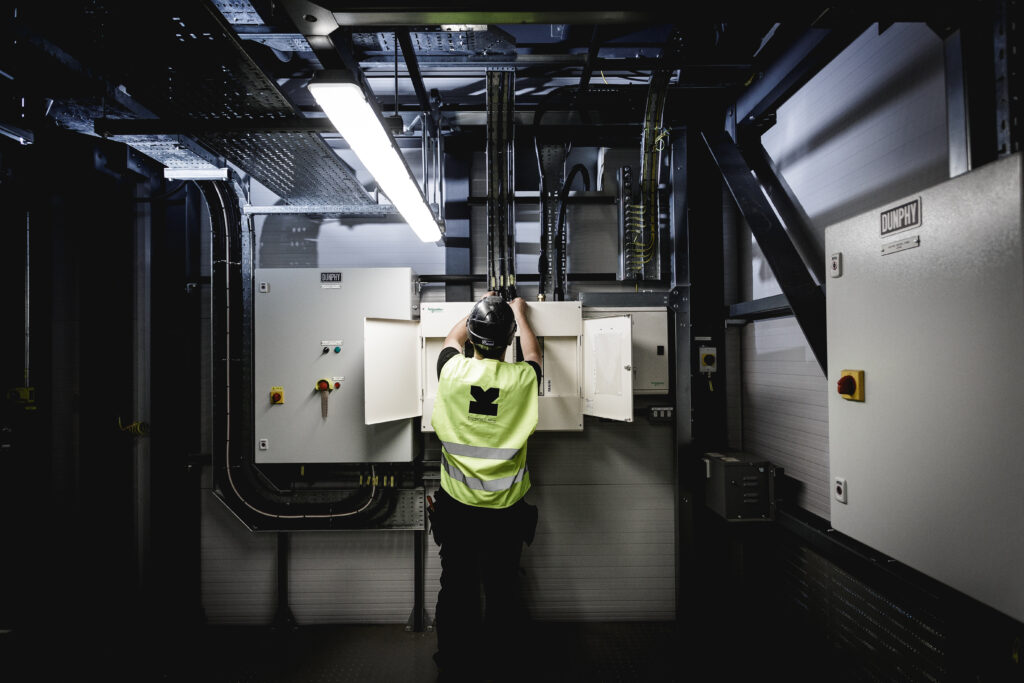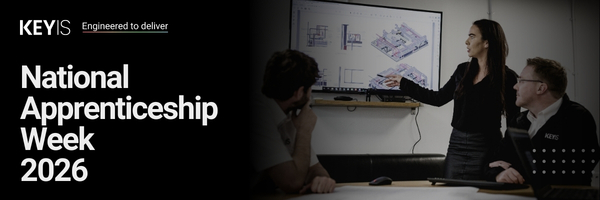Compliance in M&E Engineering: A non-negotiable standard
In the fast-paced world of Mechanical and Electrical (M&E) engineering, compliance isn’t just a regulatory requirement, it’s the foundation of safety, efficiency and operational success. For industries like food and beverage and industrial manufacturing, where hygiene, energy efficiency and system reliability are paramount, cutting corners is simply not an option. From electrical safety regulations to HVAC efficiency standards, every aspect of M&E engineering is governed by strict compliance measures. Yet, some contractors still risk non-compliance, often in a bid to reduce costs or speed up project completion. This approach, however, can lead to serious consequences, including operational failures, legal penalty and reputational damage. In this blog, we’ll explore why compliance is critical in M&E engineering and how businesses can ensure they meet the highest industry standards.
Why compliance matters in M&E engineering

1. Ensuring safety and risk mitigation
Safety is the number one priority in any engineering project. Electrical installations, HVAC system, and mechanical structures all pose potential hazards if not designed, installed and maintained to strict safety standards.
For example, in food processing plants, non-compliant HVAC systems could lead to temperature fluctuations that compromise food safety. Similarly, in industrial environments, faulty electrical installations could increase the risk of fires, putting workers and equipment in danger.
Adhering to safety standards such as the Electricity at Work Regulations 1989, Health and Safety at Work Act 1974, and CIBSE (Chartered Institution of Building Services Engineers) guidelines ensures that all mechanical and electrical installations meet the required safety thresholds.
2. Regulatory and legal compliance
Failure to meet compliance standards can result in severe legal consequences. Businesses operating in regulated sectors like food and beverage are subject to strict auditing and inspections, with non-compliance leading to hefty fines, shutdowns or loss of accreditation.
A sample of the KeyIS regulations that govern M&E compliance include:
- BS 7671 Wiring Regulations – Covering electrical safety requirements.
- F-Gas Regulations – Governing refrigeration and HVAC compliance.
- Building Regulations Part L – Focusing on energy efficiency in mechanical and electrical systems.
- BRCGS – Global Standard Food Safety
- DW/172 – Specification for Kitchen Ventilation systems
Companies that fail compliance checks often face delays in operations, increased costs for rectifications and potential legal actions from affected parties.
3. Operational efficiency and cost savings
While some businesses view compliance as an added cost, it actually prevents expensive operational failures. Investing in compliant systems and installations ensures reliability, reduces downtime and minimises maintenance costs in the long run.
For instance, a factory relying on non-compliant electrical systems might experience frequent outages, leading to costly production losses. By contrast, an M&E system designed and installed to the latest industry standards will operate efficiently, reducing breakdown risks and improving energy savings.
4. Sustainability and environmental responsibility
Sustainability is an increasing concern in M&E engineering. Energy efficiency regulations, such as Ecodesign Directive (ErP) and ISO 50001 Energy Management Standards, encourage businesses to implement sustainable mechanical and electrical solutions.
Cutting corners on compliance often means using outdated, energy-inefficient equipment that increases carbon emissions and utility costs. By adhering to compliance standards, businesses not only reduce their environmental footprint but also qualify for government incentives and grants for sustainable energy use.
How businesses can ensure M&E compliance

1. Partnering with industry experts
Choosing a specialist M&E engineering provider with a strong track record in compliance is essential. At KeyIS Mechanical & Electrical Services, we have extensive experience in delivering fully compliant, industry-specific solutions tailored to Food & Beverage and Industrial Manufacturing.
2. Regular compliance audits & inspections
Routine checks and preventive maintenance ensure that systems remain compliant over time. Businesses should schedule:
- Annual electrical inspections
- HVAC efficiency reviews
- Compliance testing for power systems and refrigeration units
3. Continuous training & certification
Keeping up with changing regulations is crucial. Engineers and maintenance staff should undergo regular training and certification to stay updated on the latest industry standards.
4. Investing in future-proof solutions
Rather than opting for short-term fixes, businesses should invest in scalable, energy-efficient, and regulation-compliant systems that will meet future compliance requirements.
Conclusion: Compliance as a competitive advantage

For businesses operating in high-risk industries, compliance is not an option, it’s a necessity. Cutting corners may seem like a cost-saving measure, but the risks far outweigh the short-term benefits. By prioritising compliance, businesses can enhance safety, reduce costs, improve operational efficiency and ensure long-term sustainability.
At KeyIS Mechanical & Electrical Services, we take compliance seriously. Our end-to-end M&E solutions ensure that every project meets regulatory, safety and efficiency standards, providing clients with reliable, future-ready installations.
Looking for a compliant M&E partner you can trust? Contact KeyIS today to discuss your next project.
Written by Mark Fairhurst, Operations Director, Key Integrated Services.


